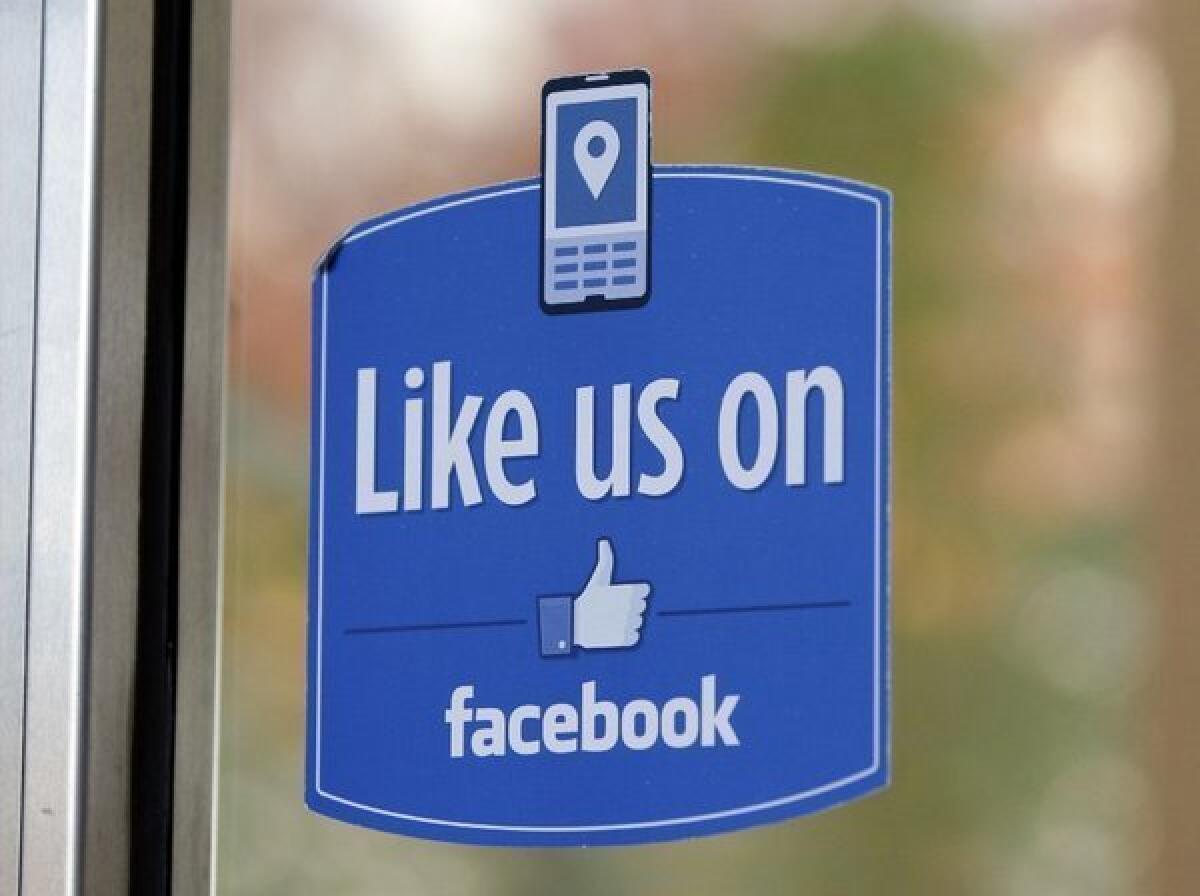On Facebook, you are what you ‘like,’ scientific study says

SAN FRANCISCO -- You are what you like on Facebook.
That’s the conclusion of a new study published Monday that says your Facebook “likes” reveal a whole lot more about you than you might think –- including how old you are, how you vote, whether you are liberal or conservative, if you have a high or low IQ, if you are an introvert or if you are gay, even if you use drugs.
The study was a collaboration of the Psychometrics Lab at the University of Cambridge and Microsoft Research Cambridge. Researchers analyzed data from 58,000-plus American Facebook users who had supplied their profiles and “likes” through Facebook’s myPersonality app. Then they made some educated guesses about personalities and behavior.
And that may not get a thumbs up from people who get click happy on Facebook, indiscriminately liking articles, photos, status updates or any one of millions of pages for their favorite brand, celebrity, movie, TV show or pop star, never once stopping to think what this public information says about them.
Think about it: Last year there were some 2.7 billion new likes on Facebook. That’s an ever-expanding body of data for marketers to mine.
According to the study: Facebook likes that predict intelligence include thunderstorms, “The Colbert Report” and curly fries. Low intelligence could be linked to likes of Sephora, “I love being a mom,” Harley Davidson and Lady Antebellum.
Gay guys apparently like Mac Cosmetics and “Wicked,” the musical. For straight guys, it’s Shaq, Wu-Tang Clan and “being confused after waking up from naps.”
The researchers say this kind of data has commercial potential in the pitching and designing of products and services.
“For example, online insurance advertisements might emphasize security when facing emotionally unstable (neurotic) users but stress potential threats when dealing with emotionally stable one,” they said.
If you want to know what your Facebook likes say about you, you can check out the one-click online personality test that researchers created.
ALSO:
Facebook front page gets a sweeping face lift
Google Glasses are (almost) here. Better get used to it.
Netflix devotion not just skin deep: Tattoo gets man free subscription
More to Read
Inside the business of entertainment
The Wide Shot brings you news, analysis and insights on everything from streaming wars to production — and what it all means for the future.
You may occasionally receive promotional content from the Los Angeles Times.










